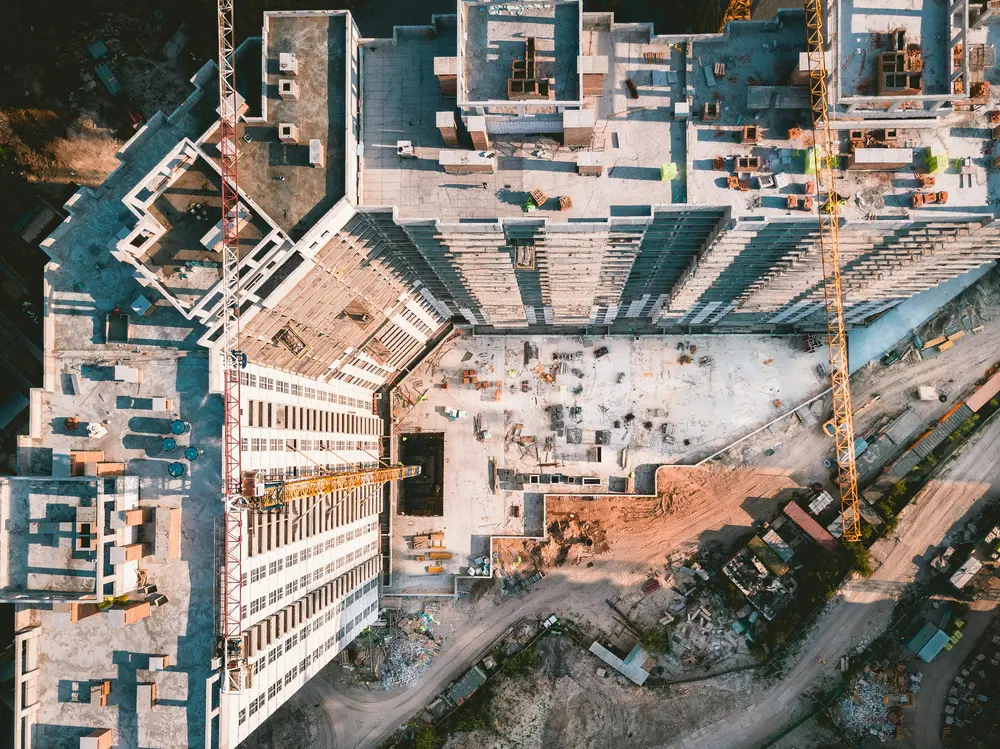Commercial Geotechnical Solutions
Connect with experienced geotechnical engineers for Melbourne's commercial developments. From high-rise towers to multi-level basements, our partner engineers deliver AS2159-compliant foundation design, advanced pile testing, and expert construction phase monitoring for complex projects.

Commercial Geotechnical Services
Deep Foundation Systems
Comprehensive design and analysis of deep foundation systems for high-rise commercial developments. AS2159-compliant solutions include advanced pile testing and quality assurance programs.
- CFA piles & driven piles
- Bored piers & caissons
- PDA & CAPWAP testing
- Static load testing
Advanced Site Investigation
Detailed geotechnical investigations using the latest testing methods to determine bearing capacity, soil parameters, and foundation requirements for commercial projects up to 50+ storeys.
- SPT & CPT testing
- Pressuremeter testing
- Rock coring & RQD analysis
- NATA accredited testing
Settlement Analysis
Detailed settlement predictions and monitoring for commercial developments to ensure structural integrity and performance.
- Immediate settlement
- Consolidation analysis
- Long-term monitoring
Rock Coring
Specialized subsurface investigation using diamond core drilling to extract continuous rock samples for foundation design and stability analysis.
- Continuous Diamond NQ/HQ/PQ diameter sampling to 200m depth with minimal sample disturbance
- Rock quality designation (RQD) - quantitative assessment of rock mass integrity and fracture density per AS 1726
- Point load testing - Lab strength classification and unconfined compressive strength estimation for design parameters
Basement & Underground Construction
Expert support for multi-level basement construction in Melbourne's CBD and commercial precincts. Partner engineers design retention systems, manage excavation risks, and ensure neighboring building protection.
- Secant pile & diaphragm walls
- Groundwater control systems
- Adjacent building monitoring
- Excavation methodology
Structural Monitoring
Advanced monitoring systems for commercial construction to track ground movement and structural performance.
- Automated monitoring
- Real-time reporting
- Risk assessment
Commercial Project Types
Office Buildings
High-rise and mid-rise commercial office developments
Retail Centers
Shopping centers, malls, and retail complexes
Hotels & Hospitality
Hotels, resorts, and hospitality developments
Mixed-Use
Combined residential, commercial, and retail projects
Commercial Standards
Our partner network's commercial geotechnical services comply with all relevant Australian Standards and industry best practices for complex commercial developments.
Commercial Project Advantages
- Access to experienced commercial project teams
- Partners with advanced testing and monitoring equipment
- Comprehensive risk assessment and management
- Fast turnaround for critical path projects
- Partner firms carry professional indemnity insurance
Melbourne Commercial Projects
Understanding Melbourne's Geology
Melbourne's unique geological conditions require specialized commercial foundation solutions. Our partners' deep understanding of local soil conditions ensures optimal foundation design.
- CBD basalt & Silurian mudstone
- Docklands marine clay challenges
- High water table management
- Contaminated land assessment
Commercial Project Timeline
Commercial Geotechnical FAQ
What investigation scope is required for multi-storey buildings in Melbourne's geological conditions?
Multi-storey commercial buildings require comprehensive investigation including borehole spacing per AS1726, minimum 3m below foundation level extending to competent bearing stratum. Melbourne's basalt/mudstone profile necessitates rock coring, pressuremeter testing for settlement analysis, and dynamic testing for pile capacity verification. Investigation depth typically ranges 15-30m depending on structural loads and geological complexity.
How do you address Melbourne CBD's high water table and adjacent building constraints?
CBD projects require detailed hydrogeological assessment, groundwater modeling, and dewatering design with environmental compliance. Partner engineers design retention systems (secant/diaphragm walls) with groundwater cut-off, implement building settlement monitoring programs, and obtain permits for controlled blasting in Silurian rock. Finite element analysis ensures minimal impact on adjacent heritage structures.
What are the AS2159 compliance requirements for high-capacity commercial piling?
AS2159 requires preliminary test piles for working loads greater than 1000kN, with static load testing to 200% working load. For high-rise applications, partner engineers implement comprehensive testing protocols including PDA monitoring on greater than 90% production piles, CAPWAP analysis for setup/relaxation effects, and integrity testing using PIT/CSL/thermal methods. Load testing frequency increases with structural importance levels per AS1170.
How do you determine bearing capacity and settlement parameters for commercial foundations?
Partner engineers utilize CPT/SPT correlations, pressuremeter testing for in-situ modulus determination, and laboratory consolidation testing on undisturbed samples. For Melbourne conditions, they account for variable weathering profiles, analyze both immediate and consolidation settlement using Schmertmann/Burland methods, and apply appropriate factors of safety per AS3600. Finite element modeling addresses complex loading scenarios.
What geotechnical considerations apply to commercial basement excavation design?
Design incorporates soil-structure interaction analysis, lateral earth pressure calculations with seismic coefficients per AS1170.4, and stability analysis against base heave/piping. Partner engineers assess construction methodology impacts, temporary works design, and implement real-time monitoring systems with automated alert protocols. Rock excavation requires pre-split blasting design and vibration monitoring compliance.
What documentation and certification is required for commercial geotechnical projects?
Projects require signed reports by chartered professional engineers (CPEng/RPEng), NATA-accredited laboratory testing certificates, and compliance statements for relevant Australian Standards. Partner firms provide inspection and test plans (ITP), construction compliance reporting, and professional indemnity insurance documentation. All deliverables meet council submission requirements and Building Code of Australia compliance framework.